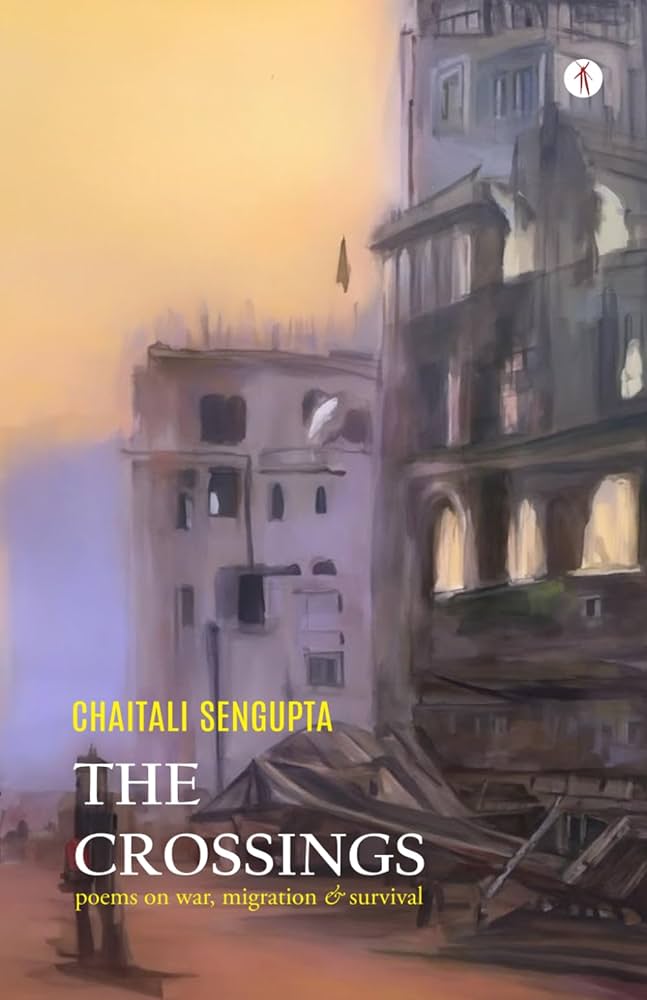The Crossings: A collection of poems about migration

Long-term resident Chaitali Sengupta drew on her Indian history as well as her experiences working with migrants in the Netherlands for her second work of poetry, The Crossings. The collection focuses on the experiences of those who leave their homelands – fleeing, migrating, or moving – to live elsewhere.
Sengupta starts strongly, with the work And then, One Day…
“And then, one day they left. Castrating our future
with their sterilized guns, making a mockery of
our lives, that lay in the muck.”
The work, divided into three parts, approaches human movement from varying angles. The first, War, is the strongest and features Indian history heavily. The second section, Migration, traces the steps of various people who have left their homelands. The final, Survival, is a mix of experiences of new arrivals and those reflecting on their past traumas.
The Crossings is not always a hopeful work, but reflective of the actual experiences of migrants.
Unsurprisingly given the subject matter, the works can be challenging. In The Fall of Mariupol, Sengupta depicts the city following the Russian invasion.
“The swelling finger of human
aggression, strokes her wrinkled face. Horrid
destruction cleaves her insides, like a plunderer,
Piercing her to the marrow, hungering for more.”
The poems focus on the present day as well as historic migration. Sengupta draws on her own history including the Partition of India, the 1947 separation of India and Pakistan.
“A few weeks to draw up that one jagged line, a frontier. Time,
they warned, was short. The line measured against our dismantled
lives. Broke the temples, razed the mosques flung us into the air.”
In her efforts to bring in a variety of perspectives, the work can sometimes feel disjointed. Many of the initial poems look to India, speaking in a voice similar to Sengupta’s own. In the later sections, other viewpoints move into the first person. For the reader, it can be challenging at times to understand the perspective.
“I’ve few words
now. The map of Afghanistan is on my wall. I imagine
the voices of my siblings
in perfect recall, but I can’t chart a path to return.”
The work ends, not exactly on a positive note, but on a feeling of persistence survival against all odds.
“History swings up, unnaturally,
aching with bruises, and mourns
of the buried days. You may flee your land,
bury the history.
But not everything dies
when you bury them.”
The author followed her husband from their native India to Eindhoven in 2000. Earlier this year, she told Dutch News: “As an immigrant or international, you’ll never become 100% Dutch.”
You can purchase a copy of The Crossings from the publisher, Hawakal Publishers.
Thank you for donating to DutchNews.nl.
We could not provide the Dutch News service, and keep it free of charge, without the generous support of our readers. Your donations allow us to report on issues you tell us matter, and provide you with a summary of the most important Dutch news each day.
Make a donation